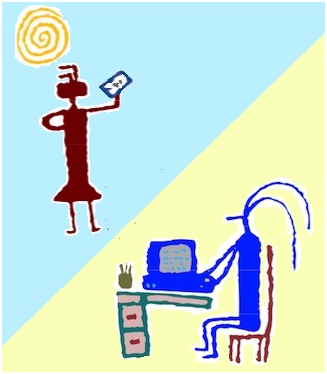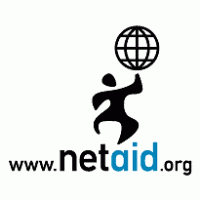
By using Facebook, you are exposing yourself to data mining at a level never before seen, with companies buying up all the information you freely share on Facebook through your posts and likes, as well as what you have put into your profile (your birthday, family connections, etc.) and using it to target you for products, services and, of course, misinformation. Through your continued use of Facebook, you may also be seen as endorsing Facebook’s business practices which are under investigation by Congress.
On the other hand, Facebook is, by far, the most widely-used social media platform and makes it oh-so-easy to share information with current and potential clients, constituents, volunteers, other supporter and the general public. A nonprofit or government agency that stops using Facebook may be cutting itself off from people who need its information, as well as from current and potential supporters.
So, should your nonprofit, as a matter of safety and ethics, delete its Facebook page and any Facebook group it manages and stop using the platform altogether?
For now, I’m going to say no, don’t, because so many, many current and potential clients, constituents and supporters of nonprofits are best reached by Facebook. I’m not sure deleting, say, a family homeless shelter’s Facebook page does anything to hurt the company’s bottom line or to make an ethical statement, but it certainly does cut off a critical avenue for that nonprofit to communicate with homeless families and people who want to support such. Even if Facebook is not your nonprofit’s primary way of communicating, your organization should have a page that notes your organization’s name, address, web site address and phone number, as well as your organization’s logo, so that someone looking for your organization on Facebook can at least find it.
That said, any nonprofit – or individual, for that matter – that stays on Facebook needs to make some commitments in order to stay ethical:
- Encourage employees and volunteers to remove their birthdays from Facebook – not just to make their birthdays private, but to put in a false birthday. Tell them also not to use the “connections” feature on their profiles to show who their children, parents or siblings are. When Facebook sells data – which is entirely legal for them to do and they do regularly – they sell whatever you have freely inputted into Facebook yourself, including your birthday and the names of family members. This information can also be obtained via frequent data breaches on Facebook. Your birthday, plus your mother’s maiden name or your children’s names, are perfect for identity theft.
- Do not force anyone to have to create a Facebook account to access information about your program or to interact with your organization. Your organization still needs a comprehensive, frequently-updated web site with all of the information anyone would want about your programs, so that people who do not wish to use Facebook or any other social media can still access complete information about you online. Your organization should not force volunteers to join a Facebook group. There are many people who do not want to use Facebook, because of the frequent security breaches, because of how it sells user information or because they just simply don’t want to, and you shouldn’t force them to do so. If you do have a Facebook group for volunteers, I strongly encourage you to look into an alternative and delete that group from Facebook. These days, I’m recommending groups.io – the free version is quite robust and it is NOT tied to anyone’s social media use.
- No matter your organization’s mission, whether you are an arts organization, school, environmental organization, youth group, senior center, whatever, you should regularly remind your staff, volunteers and clients, both via your Facebook pages and groups as well as in your other communications (meetings, email newsletter, etc.) about online scams and misinformation, particularly those perpetrated via Facebook and particularly those promoted via Facebook messenger. As part of your education efforts, remind them to NEVER engage with any government agency or bank through Facebook, that if a family member or good friend sends them a Facebook message about needing money or a way to get money they need to call that family member or friend and make sure they really are sending that message, to NEVER pay for anything with gift cards, to ignore any message, even from a family member or friend, directing you to a page to claim a prize. Share with them AARP’s excellent Baby Boomers’ Guide to Facebook and encourage employees and volunteers to review this video about detecting and reporting scams.
- You should have a training for employees and volunteers about misinformation and fake news sites: how to recognize such and how not to perpetuate that information online. A discussion over lunch is a good way to communicate about this. Good resources to use:
Fake News: How to Spot It, a resource from the Enoch Pratt Free Library at Maryland’s State Library Resource Center
How to spot fake news: Identifying propaganda, satire, and false information, a range of infographics and resources curated by Simon Fraser University
Fake News, Propaganda, and Misinformation: Learning to Critically Evaluate Media Sources, a range of resources from Cornell University.
Finally, do not rely entirely on Facebook as your nonprofit, school or community program’s way of communicating. As noted earlier, your organization still needs a comprehensive, frequently-updated web site. Your organization should still have an email newsletter people can subscribe to. Your organization should be using other social media platforms. Your organization may still want to have a mailed paper newsletter, or open houses, or public meetings, or any of the many other ways organizations communicate offline. You invest entirely in one social media platform as your way of communicating at your own peril!

If you have benefited from this blog or other parts of my web site and would like to support the time that went into researching information, developing material, preparing articles, updating pages, etc. (I receive no funding for this work), here is how you can help.




